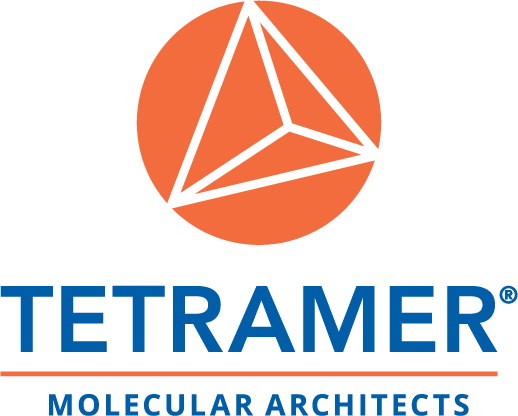Tetramer has been awarded a Phase I DOE Contract (DE-SC0019560) to develop Improved Membranes for Solar Fuels Generators.
Solar fuels generators harness solar energy as the power source to facilitate the generation of either hydrogen or carbon based fuels. In both cases, water is electrochemically oxidized to produce oxygen, protons and electrons at the anode. Hydrogen or carbon based fuels are produced simultaneously at the cathode by the reduction of protons or carbon dioxide, respectively. Ion exchange membranes are a critical component of the system, but membranes currently available were developed for other applications and do not meet the specific requirements of this developing technology.
Current work at Tetramer is focused on the development of new proton exchange membranes that address the challenges of both solar-to-hydrogen and solar-to-carbon fuels generators. Specific requirements to be addressed include reduced hydrogen permeation (to improve efficiency and limit hazardous mixing of hydrogen and oxygen), reduced costs and improved durability compared with current commercially available materials. Additional requirements for solar-to-carbon fuels membranes include chemical stability and low permeability to complex mixtures of potential products such as methane, methanol, ethanol and ethylene.
Success of this work would be an important step towards realizing the goal of achieving cost effective renewable fuel production. Examples of three critical areas which would be affected by success in the proposed work include industrial gas applications/chemical feedstocks, transportation fuels and power backup/storage. For each of these applications, the use of solar generated fuels would result in a reduced dependence on fossil fuels and the associated economic, political and environmental issues related to their extraction, refinement, supply and final use.


